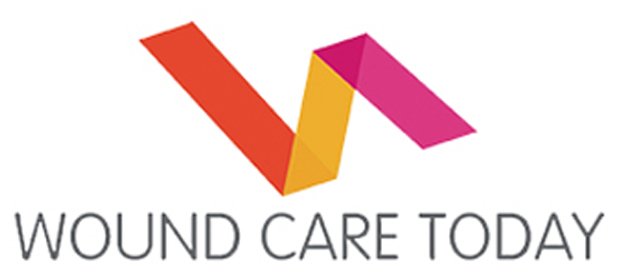
Alison Schofield, Editor in Chief, Wound Care Today; Tissue Viability Team Lead and Clinical Nurse Specialist, North Lincolnshire and Goole NHS Foundation Trust; Co-founder, TVN2gether
Another year has passed and we are about to embark on the third annual Wound Care Today Conference, which as always, has meeting the needs of clinicians working in wound care at its heart.
This year’s conference will see many firsts, not least a live discussion on stage of ‘Tissue viability services and nurses in crises’. This has been organised in response to discussions with many of you working in tissue viability in the NHS, and your request for support in meeting the demands and pressures of the post in the current climate.
Currently, many experienced and knowledgable TVNs are leaving the NHS to join industry, or are taking on other types of work totally unrelated to tissue viability. Of course, it is not wrong to leave and explore other avenues, but in many cases, it is a result of clinicians leaving a discipline they love due to feeling unsupported at work, and suffering excessive stress from being unable to meet the demands made of them by their organisation. We must question why this is, and how as a community, we can support each other and challenge our organisations to provide appropriate support within the workplace.
Part of the problem is that tissue viability nursing has developed over time, as it should to meet the needs of the patient population, but a consequence of this state of flux is a lack of definition of what our role entails.
In fact, there is no definition of what being a specialist is, nor any required qualifications to become a TVN in the NHS today. Job roles can vary not only in banding but in job description from Trust to Trust, leading to insecurity, dissatisfaction and stress. Some TVNs have expressed that they are drowning in paperwork, data analysis, reports, and deadlines. These things are important but can take over from the patient-centred nursing approach they are best at delivering, and as a result, can create great anxiety and job dissatisfaction.
Are we as a profession in the midst of an identity crisis? It seems so, and that we desire and need structure to our role, the service we provide, and more organisational support to help us cope with the demands of our job.
The high demands on nurses today in the NHS can create a conflict between a nurses’ desire to provide high quality, compassionate patient care and the frustrating reality of being unable to meet these ideals, a dilemma that unsurprisingly, can lead to feelings of inadequacy and work-related stress (Smith et al, 1999; Upton, 2018).
Personally, through TVN2gether, I often get message requests from colleagues around the UK asking for support in clinical practice, but also just wanting to express that they have had an awful week, that they feel they have just had enough, or they may just want an ear to listen. Evenings and Sundays are the time when people often reach out, when we are home and reflecting.
Wound Care Today and TVN2gether have listened and recognised this and want to offer support; starting with the session at WCT. We endeavour to create a support system to help you, where you can reach out and feel connected personally and access support and advice whenever you need it. Please help us to help you by engaging with the process, beginning at WCT. Importantly, remember, you are NEVER alone.
This year’s conference will see many firsts, not least a live discussion on stage of ‘Tissue viability services and nurses in crises’. This has been organised in response to discussions with many of you working in tissue viability in the NHS, and your request for support in meeting the demands and pressures of the post in the current climate.
Currently, many experienced and knowledgable TVNs are leaving the NHS to join industry, or are taking on other types of work totally unrelated to tissue viability. Of course, it is not wrong to leave and explore other avenues, but in many cases, it is a result of clinicians leaving a discipline they love due to feeling unsupported at work, and suffering excessive stress from being unable to meet the demands made of them by their organisation. We must question why this is, and how as a community, we can support each other and challenge our organisations to provide appropriate support within the workplace.
Part of the problem is that tissue viability nursing has developed over time, as it should to meet the needs of the patient population, but a consequence of this state of flux is a lack of definition of what our role entails.
In fact, there is no definition of what being a specialist is, nor any required qualifications to become a TVN in the NHS today. Job roles can vary not only in banding but in job description from Trust to Trust, leading to insecurity, dissatisfaction and stress. Some TVNs have expressed that they are drowning in paperwork, data analysis, reports, and deadlines. These things are important but can take over from the patient-centred nursing approach they are best at delivering, and as a result, can create great anxiety and job dissatisfaction.
Are we as a profession in the midst of an identity crisis? It seems so, and that we desire and need structure to our role, the service we provide, and more organisational support to help us cope with the demands of our job.
The high demands on nurses today in the NHS can create a conflict between a nurses’ desire to provide high quality, compassionate patient care and the frustrating reality of being unable to meet these ideals, a dilemma that unsurprisingly, can lead to feelings of inadequacy and work-related stress (Smith et al, 1999; Upton, 2018).
Personally, through TVN2gether, I often get message requests from colleagues around the UK asking for support in clinical practice, but also just wanting to express that they have had an awful week, that they feel they have just had enough, or they may just want an ear to listen. Evenings and Sundays are the time when people often reach out, when we are home and reflecting.
Wound Care Today and TVN2gether have listened and recognised this and want to offer support; starting with the session at WCT. We endeavour to create a support system to help you, where you can reach out and feel connected personally and access support and advice whenever you need it. Please help us to help you by engaging with the process, beginning at WCT. Importantly, remember, you are NEVER alone.


